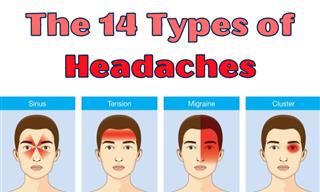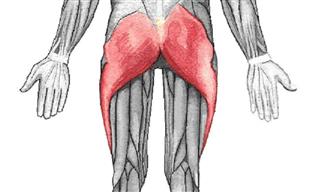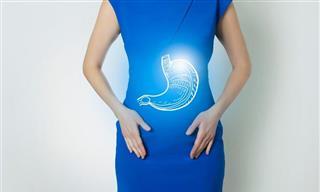
1. They are among the most nutritious food on the planet.
Eggs contain a little bit of almost every nutrient we need, making them the perfect food. In fact, a single boiled egg contains:
• Vitamin A (6% of the RDA*)
• Folate (5% of the RDA)
• Vitamin B5 (7% of the RDA)
• Vitamin B12 (9% of the RDA)
• Vitamin B2 (15% of the RDA)
• Phosphorus (9% of the RDA)
• Selenium (22% of the RDA)
• Eggs also contain decent amounts of vitamin D, vitamin E, vitamin K, vitamin B6, calcium and zinc.
In total, eggs equate to 77 calories, 6 grams of protein and 5 grams of healthy fats.
*RDA - Recommended Daily Allowance
2. While eggs may be high in cholesterol, they don't adversely affect blood cholesterol.
True, eggs are high in cholesterol. In fact, a single egg contains 212mg, which is over half of the recommended daily intake of 300mg. However, while it may seem counter-productive to eat eggs, the cholesterol in eggs does not necessarily raise cholesterol in the blood. Of course, it is important to note that the response of egg consumption varies from one individual to another. But overall, studies have shown that in 70 percent of people, eggs did not raise cholesterol at all. However, in the other 30 percent (termed hyper responders) eggs mildly raised total and LDL cholesterol.
3. For the most part, eggs actually raise HDL (healthy) cholesterol.
Often termed the good cholesterol, consuming eggs are a great way to increase HDL. In one study, it was found that those who consumed two eggs per day for six weeks, saw their HDL increased by 10 percent. It has also been shown that people with higher levels of HDL, usually have a lower risk of heart disease, stroke, and various health problems.

4. Eggs contain choline - an important nutrient that most people do not get enough of.
This important nutrient is grouped within the B vitamins. It is used to build cell membranes and plays a role in the production of signaling molecules in the brain. However, according to dietary surveys, 90 percent of the U.S population is getting less than they ought to. Whole eggs are therefore an excellent source of choline, as a single egg contains more than 100mg.
5. Eggs convert LDL cholesterol particles from small and dense to large.
This change in particles has been linked to a reduced risk of heart disease.
It is a well-known fact that having high levels of LDL (bad cholesterol) is linked to an increased risk of heart disease. However, what is not well known is that there are subtypes of LDL. See, there are small, dense LDL particles, and there are also large LDL particles. Studies have shown that people who predominantly have small, dense LDL particles also have a higher risk of heart disease than those with large LDL particles.
So, as I pointed out in the third fact, while eggs may mildly raise LDL cholesterol in some individuals, studies have shown that eggs may potentially change LDL particles from small and dense to large.
6. Two of the antioxidants found in eggs (lutein and zeaxanthin) are beneficial for eye health.
Aging usually brings with it the onset of poorer eyesight. Thankfully though, several nutrients can help counteract some of the degenerative processes which can affect our eyes. Lutein and zeaxanthin are two such powerful antioxidants which tend to build up in the retina of the eye. In a controlled trial, it was found that eating 1.3 egg yolks per day for 4.5 weeks increases blood levels of lutein (by 28 to 50 percent) and zeaxanthin (by 114-142 percent).
Furthermore, studies have shown that consuming adequate amounts of these nutrients can significantly reduce the risk of cataracts and macular degeneration - two very common eye disorders. Eggs also contain substantial amounts of vitamin A, which can reduce blindness.
7. Eggs rich in Omega-3, lower triglycerides (a risk factor for heart disease).
Not all eggs are created equal. Their nutrient composition varies depending on what the hens were fed and how they were raised. Hens that were raised on pasture and/or fed Omega-3 enriched foods tend to lay eggs that have a much higher Omega-3 fatty acids content - a nutrient that is known to reduce blood levels of triglycerides (a risk factor for heart disease).

8. Eggs are a great source of protein - the main building blocks of the human body.
Ensuring that you get enough protein in your diet is important - in fact, it has been suggested that the Recommended Daily Amounts (RDAs) may be too low. But, seeing that eggs contain all the essential amino acids in the right ratios, our bodies are easily able to absorb the protein found in eggs. Eating adequate amounts of protein may also help with weight loss, increasing muscle mass, lowering blood pressure and optimizing bone health. One single, large egg contains 6 grams of protein.
9. Eggs may actually reduce the risk of a stroke.
Eggs have been unfairly demonized for decades, due to the levels of cholesterol found in them. However, many studies have examined the relationship between egg consumption and the risk of heart disease. In one meta-review of 17 studies, with a total of 263,938 participants, no association was found between egg consumption and heart disease or stroke.
However, some studies have found that people with diabetes who ate eggs can have an increased risk of heart disease. Nevertheless, whether the eggs are actually causing the increased risk is not known.
10. Eggs score high on the Satiety Index, inducing feelings of fullness and reducing subsequent calorie intake.
Eggs are high in protein, which is one of the most fulfilling macronutrients. In one study of 30 overweight women, it was found that eating eggs instead of bagels for breakfast, increased feelings of fullness, making them automatically eat fewer calories during the following 36 hours. It was also found that eating an egg for breakfast caused significant weight loss over a period of 8 weeks.
 Go to BabaMail
Go to BabaMail


























